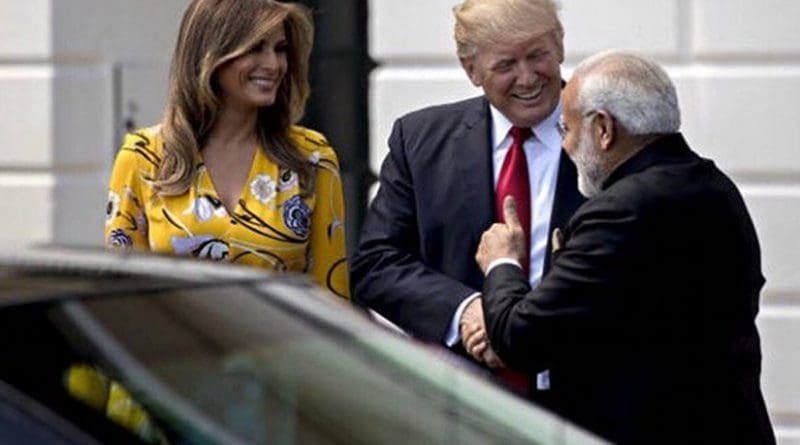India-US: The Trump Effect – Analysis
By Observer Research Foundation
By Seema Sirohi
President Donald Trump’s team describes his style of functioning as “non-traditional,” knowing full well the other side doesn’t buy the euphemism but in the interest of bilateral relations will work with them to find accommodation.
For the most part Indian officials have adjusted calmly to a sparsely staffed Trump Administration where few people know what’s really going on at the top levels. Those in the know rarely brief the people below who do the day-to-day tending of relations with countries.
The North Korean assignment was deemed urgent enough to require Secretary of State Mike Pompeo’s presence in Pyongyang exactly at the same time.
Some have speculated that North Korea might already be cheating on its commitment to denuclearize by improving its nuclear infrastructure at Yongbyon facility based on leaked intelligence reports. North Korea is said to have increased production of nuclear fuel.
Other reports indicate the US might be getting ready to receive the remains of American soldiers who died in the Korean War. North Korean leader Kim Jong-un has promised to return the remains and the Pentagon has already sent 100 coffins to the border of North and South Korea.
Apart from announcing that Pompeo is headed to Pyongyang to “continue consultations and implement the forward progress” made by Kim and Trump during the Singapore summit, the official press release did not elaborate. He will then travel to Japan, Vietnam, Abu Dhabi and finally to Brussels for the NATO summit.
This is Trump’s style – no method and all ad hoc. He wants to grab the shiniest object and forget the rest. Some say his apparent disinterest in India is because he hasn’t found the kind of deal making on trade issues he had hoped for and has therefore taken to berating India on high tariffs.
US officials, acting as amateur psychoanalysts, say that if Trump feels that a country is responding to him, especially on trade issues, it has benefits far beyond any deal. “He would feel he has got a friend,” said one. But India’s response as summed up by an official was, “We can’t do this, we can’t do that” when it came to trade issues.
For the last year, Indian officials have preferred not to be on Trump’s radar because they figured it was safer to lay low having crafted a showy summit for Prime Minister Narendra Modi. They worked quietly to the extent possible with those who have Trump’s ear.
But the problem is the India-US relationship has traditionally required high-level attention to force the growth spurts necessary to make up for the drag of decades of mistrust and divergences.
While regular meetings between foreign, defence and commerce ministers have kept the momentum going, it’s the interventions by US presidents and Indian prime ministers that have often saved the day. The 2005 nuclear deal wouldn’t have been possible but for the far-sightedness of Manmohan Singh and George W. Bush.
Unfortunately, Trump’s interventions on India – public and verbal – have been negative. That in turn has outraged Modi’s inner circle of image managers and worshippers, even if he himself might see the bigger picture. They see the postponement of the 2+2 dialogue as a deep insult.
Is the postponement a measure of India’s importance in US foreign policy? To be brutally realistic, India neither being what Americans call a “problem” country nor an ally, has always come in the second rung of importance, never mind the hype created by American image managers and bureaucrats.
No US president has lost sleep over India and that is just a plain fact. Pakistan and China have both punched above India many times because various US administrations found them necessary for the pursuit of their Cold War goals.
That being said, India-US relations have shown an upward trajectory since the early 2000s, especially during the George W. Bush administration when calculations about China began to evolve. And they will survive Trump as well, guided ably by the self-interest of Indian ruling elites whose sons and daughters are living the American Dream and the US need to balance China.

